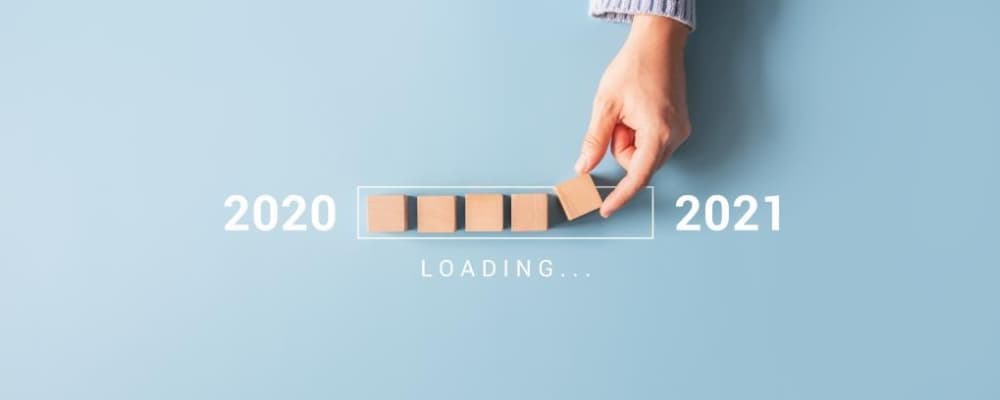Discover how to prepare for the year ahead. Our MD, Omer Abdullah, talks top procurement trends, and shows us what to look out for in 2021.
2020 certainly wasn’t short on challenges. For organisations of all sizes and in all industries, the last year provided a valuable lesson in crisis management, demanding new ways of working and new levels of agility.
I’m sure I’m not the only one that hopes 2021 will provide a slightly sunnier outlook, but it would be naïve to think that the challenges of 2020 are behind us. After all, pandemics and their related fallouts don’t normally adhere to the Gregorian calendar.
That said, there is light at the end of the tunnel. With several COVID vaccines now rolling out, it’s unlikely that we’ll face quite the same level of disruption we’ve experienced over the past twelve months. For that reason, it’s with a sense of cautious optimism that I’ve compiled a list of four Procurement trends that I expect to dominate the next year – along with some thoughts on what Procurement leaders should be thinking about to make sure 2021 is a successful year.

Risk management takes centre stage—and comes in tiers
As much as the recent vaccine news has seen us turn a corner with COVID-19, we’re still some way away from business as usual. Vaccine rollout poses a huge logistical challenge, and it’s not entirely clear what the take-up will be. We also don’t really know how the economy will react when restrictions are lifted. Will there be an immediate resurgence in the job market, will an air of caution continue to affect hiring policies for some time to come, or will companies use the pandemic as means to reset their needs for the long term?
For now at least, uncertainty still reigns, and for that reason I expect risk management to be the primary consideration for Procurement practitioners throughout 2021. We’ve seen this all before, of course. In the recession of 2008 risk was a major focus, but back then there were no structured risk management solutions that could be quickly implemented to help mitigate threats, and so once economies started to see an uptick, issues of risk were deprioritised (if not forgotten).
Today, though, organisations have plenty of options in this regard, from basic one-size-fits-all software solutions, to more sophisticated solutions that integrate tech, analytics and human expertise to provide custom insights into category management strategy, supplier risk intelligence and consumer and market insights.
In 2021, I expect to see forward-thinking organisations take a tiered approach to deploying these solutions, managing risk based on each supplier’s strategic value to the business. For instance, for suppliers that hold little value, automation can be used to drive governance by exception, highlighting anomalies that should be investigated. For highly strategic suppliers on the other hand, ongoing programs must be put in place to monitor vital parameters—including performance, operations, competition, governance and sustainability.
The antidote to uncertainty? Agility.
Of course, the best way to battle uncertainty is with organisational agility. And over the last year, many Procurement organisations have proven beyond doubt that they have what it takes to be agile.
When everything changed in March, we saw Procurement practitioners band together, support broader task forces within their companies, and provide the intelligence and actionable insights that allowed important decisions to be made more quickly. In doing so, they helped their organisations tackle numerous unexpected challenges, like lockdowns causing logistics bottlenecks and suppliers disappearing from their ecosystems.
Uncertainty will continue to be a major feature of the year ahead, and so I suspect agility will continue to be a focus throughout 2021. The traditional approach of building a playbook at the beginning of the year and sticking with it just isn’t going to cut it. Sure, you still need a playbook. But Procurement organisations need be scenario-driven, too, and know that at any given time they may have to turn on a dime and start moving in a different direction.
True agility in this sense requires a complete change of mindset. Practitioners have to think in terms of multiple scenarios and probabilistic outcomes, and incorporate highly flexible processes. They must also maintain close alignment with internal stakeholders to ensure a clear understanding of their ongoing needs.

The ongoing shift to intelligence-led procurement
A foundational shift in the practitioner’s mindset is to become more insight-led. In recent years, we’ve seen a clear move in this direction – both at an overall functional level but more critically at an individual level. In fact, one of the few positives of the pandemic is that a lot of organisations have started to see the strategic value Procurement can deliver as a function—especially in terms of responding to change and managing risk in uncertain environments. And without exception, this was based in the practitioner’s ability to understand the business, assess the implications of external and internal intelligence and apply the implications as actionable insight, to the betterment of the internal customer.
To capitalise on this, astute practitioners will continue to position themselves as trusted advisors. But that’s only possible if they have a complete understanding of two things: The needs of the internal customers they serve, and the categories they work in.
Essentially, Procurement teams are no longer there to process contracts and cut PO’s. Their job now is to understand dynamic markets and proactively identify the best responses to change. This requires timely access to external and internal data. And, of course, the ability to turn that data into intelligence. But it also requires a different skillset than the one Procurement organisations traditionally focus on. Soft skills, like the ability to communicate, negotiate, and understand and translate issues almost exactly as a consultant would, will be of huge importance.
For many, this may sound revolutionary; the brave new world of Procurement. But progressive organisations are already moving in this direction – and have been for some time.
Ecosystem thinking
One other major trend we’ve seen this year, in response to the challenging conditions, is a greater level of collaboration from Procurement with its external partners, and I expect this to continue through 2021 and beyond.
The old DIY mentality (“My category leaders should be taking care of this themselves”) is, quite simply, outdated. There are no lone rangers in modern Procurement and we cannot reasonably expect to have access to all needed capabilities in-house. Quite simply, for practitioners to fulfil the agile, insight-led roles I’ve discussed in our previous sections, they must form an ecosystem of mutually beneficial partnerships, or face certain failure.
Like all of the trends we’ve covered, forming these partnerships will require a change in mentality. Traditionally adversarial relationships with suppliers, where Procurement organisations would battle for the lowest price, must be replaced with a more open-book and collaborative attitude to working. Practitioners can no longer afford to keep suppliers at arm’s length, but instead must embrace a culture of openness, freely sharing data and information for everyone’s benefit.
This ecosystem mentality is something that I’ve seen increasingly understood and adopted since March this year, and is one that I believe will become a hygiene factor for the function.
For more insights into the latest Procurement trends, visit our blog. If you’d like assistance with your Procurement activities in the coming year, please get in touch and talk to one of our experts.



